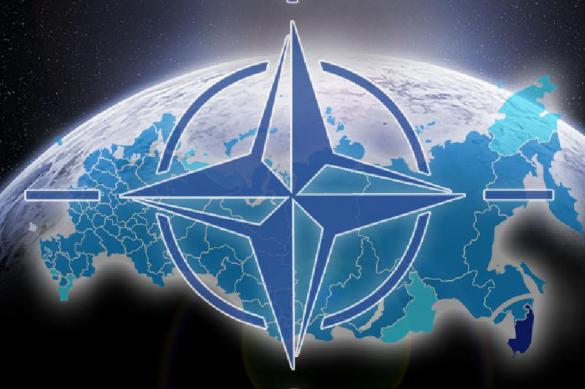As soon as US welcomes Georgia and Ukraine to NATO, Russia burns the bridges
Russian Foreign Minister Sergei Lavrov announced the termination of diplomatic relations with NATO at a time when US Secretary of Defense Lloyd Austin ended a meeting in Georgia with his counterpart.

Austin's voyage plays decisive role in severing Russia's relations with NATO
The purpose of Austin's visit to Georgia is to convince allies and partners of USA's commitment to their sovereignty in the face of the Russian aggression, the Department of Defence said.
Lloyd Austin will visit Georgia and Ukraine, where he will emphasize that the door to NATO is open for them, and urge these countries to make necessary changes in order to qualify for membership in the defense alliance, the department also noted.
On Monday, October 18, Austin had a meeting with his Georgian counterpart Dzhuansher Burchuladze.
Following the meeting, the US Defense Secretary and the Georgian Defense Minister signed a Memorandum of Understanding aimed at strengthening Georgia's defense capabilities.
"Georgia has consistently and steadfastly supported the U. S. in promoting peace and stability in the region, and I'm glad to have this opportunity to reaffirm our support for Georgia's sovereignty and territorial integrity," Austin said on Twitter.
"We had a very important meeting, during which we reviewed primary threats and challenges within the country, region and in the world and noted that our strategic cooperation based on mutual trust has never been as strong and multifaceted as it is now," Burchuladze said after the meeting.
Later on October 18, the US Secretary of Defense will meet with Georgia's Prime Minister Irakli Garibashvili. The US Secretary of Defense will also visit one of the military bases of the Georgian Defense Forces and take part in joint exercises of US and Georgian troops.
An official statement from the Georgian Defense Ministry said that the visit stressed out the importance of the strategic partnership between the United States and Georgia and the high level of cooperation to strengthen the partnership based on shared values.
Austin will also visit Romania before visiting NATO headquarters in Brussels.
On August 31, up to ten agreements and memoranda were signed between the United States and Ukraine during the visit of Ukrainian President Volodymyr Zelensky to Washington. One of them was the framework agreement on the strategic foundations of defense partnership.
According to the official website of the President of Ukraine, the plan, which is to be implemented by December 2026 in cooperation with the United States and Ukraine, will focus on Ukraine's goal to effectively counter the Russian aggression. The plan is also associated with a significant increase in the compatibility of the Ukrainian army with NATO.
NATO crosses the red line, but Russia is not sitting and waiting
Austin's tour of post-Soviet states with a goal to invite Georgia and Ukraine to NATO has obviously played a decisive role in Moscow's decision.
On Monday, October 18, Kremlin's official spokesman Dmitry Peskov called Ukraine's entry into NATO "the worst scenario", to which Russia will respond with "active measures."
"This is a scenario that goes beyond the red lines of Russia's national interests. This is a scenario that may force Russia to take active measures to ensure its own security," Peskov said in an interview with France 5 TV channel.
Russia is no longer afraid of possible risks of severing relations with NATO. The alliance has crossed the red line, having thus posed a direct threat to Russia's security.
Russia's response to NATO was not limited to the expulsion of a few NATO officials from Moscow. In fact, it goes about the severance of political relations between the Russian Federation and NATO, which, in fact, had already been brought to naught. Suffice it to recall that after Alexander Grushko (Permanent Representative of Russia to NATO from 2012 to 2018) returned to Moscow in January 2018, a new Russian permanent representative to Brussels had never been appointed. The meetings of the Russia-NATO Council have not been held for a long time either.
When deciding to expel employees of the Russian mission, NATO officials knew that Russia would respond. Most likely, they knew that the reaction would be tough. NATO did not want to take the initiative to break off the relations. Presumably, they can now say: look at the Russians, we wanted to cooperate with them, but it was them, who broke off the ties.
Russian Foreign Minister Sergei Lavrov announced that Russia would no longer be pretending that the relations with NATO could change for the better in the near future. They call a spade a spade here: the relations between Moscow and NATO are not going to go back to normal. By and large, these relations had been frozen quite a while back.
Subscribe to Pravda.Ru Telegram channel, Facebook, RSS!


